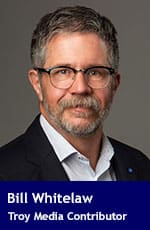- Shaping a positive, profound vision of energy in Canada
- Building bridges of trust to energy decision-making
- Turning Alberta’s inactive wells back into assets
- Talking the talk, walking the walk of disruptive innovation
The role of the Energy Futures Lab in Canada
 In terms of Canadian energy narratives, 2017 was a mess.
In terms of Canadian energy narratives, 2017 was a mess.
Instead of moving forward one step, Canada took five backward steps. Most narratives were destructive when they could have – and should have – been constructive. It didn’t matter if the subject was pipelines and regulation or carbon emissions and technology, most dialogues failed to move forward.
These dialogues should recognize that the environment and the economy are interdependent, that good regulation makes for good policy and good competition, and that policy inertia and political hypocrisy thwart investment.
But it seems Canadians are mostly incapable of even defining the common challenge. Energy affairs pit Canadians against each other in polarizing and paralyzing ways.
As a new year dawns, can Canadians expect more of the same?
Not if Energy Futures Lab (EFL) has something to say about it.
EFL is one of a number of bright lights in an otherwise gloomy future – particularly as an effective narrative platform. Properly supported by the right partners, it may become one of the most important voices in Canada’s energy future.
An effective narrative platform requires reconstructing four dynamics:
- That too many energy dialogues involve small cadres of individuals and groups that are too alike in their energy DNA.
- That in great part energy communications come from groups speaking on behalf of corporate shareholders. As a result, there’s a tendency within the public to discount important narrative elements.
- That society has allowed science to be politicized and prostituted. This has killed discussions involving critical thinking. Too often, PhDs battle over the scientific method and whose interpretation of the data should prevail in contentious situations.
- That Canadians are voracious energy consumers but are mostly ignorant about fundamental energy dynamics. This includes politicians.
These four elements are daunting for anyone wanting to move energy dialogue forward.
But a number of organizations, including EFL, are focused on these issues.
Here’s why Energy Futures Lab’s undertakings are key to resolving these issues. It’s a made-in-Canada solution for made-in-Canada challenges.
Its fellows – Now numbering 60, the men and women who commit their time and talents to EFL are the lab’s backbone. They come from backgrounds and experiences as diverse as the energy spectrum itself. They’re innovators and influencers, leaders and transformers. They’re tackling the tough questions on the other side of which they see opportunity. One of the fellowship’s key outputs is Our Shared 2050 Vision, laying out the potential for Alberta’s energy systems future.
Our Shared 2050 Vision – This recognizes Alberta and Canada are home to some of the world’s most knowledgeable and responsible energy citizens. In the vision, Alberta becomes net carbon-neutral for electricity, heat, transportation and industrial processes, while becoming a global source for energy technology and future-fit hydrocarbons. The vision also anticipates energy-based partnerships with Indigenous peoples.
Exemplar initiatives – These are built on five key priority themes: future-fit hydrocarbons, leveraging energy assets, Indigenous leadership, community resilience and workforces in transition. Fellows undertake specific initiatives associated with each priority area. Under future-fit hydrocarbons, for example, concrete projects include radical decarbonization of hydrocarbons; development of a bio-jet fuel sector in Western Canada and clean combustion of waste gases.
Stakeholder alignment – EFL has managed to bring to the same table a diverse collaboration of industry players, post-secondary institutions, governments, economic development agencies and non-government organizations. Each has a different (sometimes dramatically different) perspective on energy systems and transition. EFL has become a neutral and safe forum to discuss and debate often complex energy issues. As a result, EFL has been asked to lead internal efforts for supporters such as the National Energy Board, Emissions Reduction Alberta and Suncor.
Public engagement – EFL doesn’t focus inwardly, as some group do. It focuses on leveraging its work on behalf of broader constituencies and communities. It runs bootcamps, for example, that focus on building competencies to lead through energy transition dynamics. In 2017, more than 400 people participated in the Newtonian Shift simulation, which compacts decades of energy transition through a variety of perspectives into a one-day workshop.
EFL’s management, its steering committee and fellows are now pondering for EFL 2.0 for 2018. This evolution of its efforts involves engaging new communities, new stakeholders and new funders.
It’s an investment that’s already demonstrating returns.
Bill Whitelaw is a director and advisor to many industry boards, including the Canadian Society for Evolving Energy, which he chairs. He speaks and comments frequently on the subjects of social licence, innovation and technology, and energy supply networks.
For interview requests, click here.
The opinions expressed by our columnists and contributors are theirs alone and do not inherently or expressly reflect the views of our publication.
© Troy Media
Troy Media is an editorial content provider to media outlets and its own hosted community news outlets across Canada.

